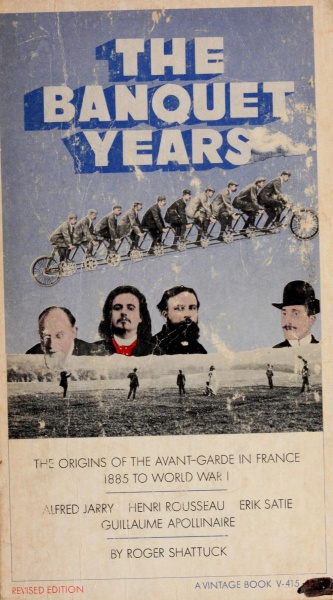Collected Works of Velimir Khlebnikov, 3 vols. (1987-1998)
Filed under poetry | Tags: · fiction, futurism, language, literary theory, literature, poetics, poetry, theatre, zaum



“Dubbed by his fellow Futurists the “King of Time”, Velimir Khlebnikov (1885–1922) spent his entire brief life searching for a new poetic language to express his convictions about the rhythm of history, the correspondence between human behavior and the “language of the stars.” The result was a vast body of poetry and prose that has been called hermetic, incomprehensible, even deranged. Of all this tragic generation of Russian poets (including Blok, Esenin, and Mayakovsky), Khlebnikov has been perhaps the most praised and the more censured.”
Edited by Charlotte Douglas (1), Ronald Vroon (2-3)
Translated by Paul Schmidt
Publisher Harvard University Press, 1987-98
ISBN 0674140451 (1), 067414046X (2), 0674140478 (3)
xii+452 & xii+403 & x+274 pages
Reviews: Cooke (of Vol 1, SEER 1989), Yastremski (of Vol 2, SEEJ 1990).
1. Letters and Theoretical Writings (1987, 29 MB)
2. Prose, Plays, and Supersagas (1989, 17 MB)
3: Selected Poems (1998, 10 MB)
More from Khlebnikov (incl 6-volume Russian collection)
Khlebnikov on Ubuweb Sound
Aristotle: Poetics (c347-335 BCE–)
Filed under book | Tags: · literary theory, mimesis, philosophy, poetics, poetry, theatre

Aristotle’s Poetics is the earliest surviving work of dramatic theory and the first extant philosophical treatise to focus on literary theory.
The Monoskop wiki hosts passages from the Poetics selected to highlight the ambiguity of the terms central to theory of art and literature, particularly poiêsis, mimêsis and technê (in two Greek versions and three English translations), and an annotated source bibliography of editions and translations of this work into various languages.
Comment (0)Roger Shattuck: The Banquet Years: The Origins of the Avant-Garde in France, 1885 to World War I., Rev. ed. (1955/1968)
Filed under book | Tags: · 1880s, 1890s, 1900s, 1910s, absurd, anarchism, art, art history, avant-garde, cubism, dada, dreams, france, literature, logic, montage, music history, painting, pataphysics, poetry, theatre, typography

In this book Roger Shattuck portrays the cultural bohemia of turn-of-the-century Paris who carried the arts into a period of renewal and accomplishment, and laid the ground-work for Dada and Surrealism.
“…Then came the idea–a kind of gambler’s hunch–that the trio Rousseau-Satie-Apollinaire represented several significant aspects of the period and could reveal them better than any single figure. The idea would not die. [..] Jarry had forced his way into the group and established himself close to the center of things. He helped clarify my underlying subject: how the fluid state known as bohemia, a cultural underground smacking of failure and fraud, crystallized for a few decades into a self-conscious avant-garde that carried the arts into a period of astonishingly varied renewal and accomplishment. [..] An enormous amount has been written on this era and these men since the first edition of this book in 1958. I have taken account of some of it by changing those passages where new facts have come to light.” (from the Preface to this edition)
First published in 1955
Publisher Vintage Books, 1968
397 pages
Review (Alfred Kazin, The Reporter, 1958)
Review (Sidney Tillim, College Art Journal, 1959)
Review (Justin O’Brien, The Saturday Review, 1958)
PDF (115 MB, no OCR)
Comment (0)
